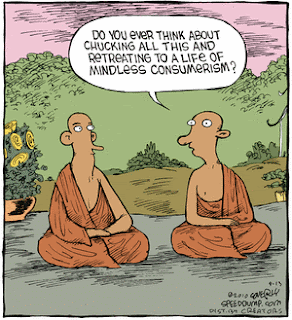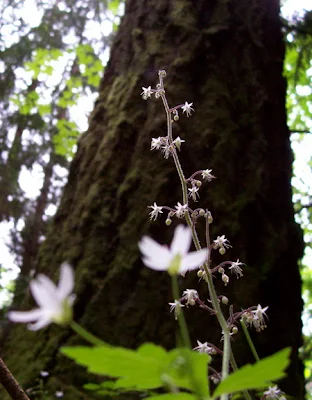 |
| Beware of the cheap Halloween Candy (especially Nestle products) |
Now that Halloween is almost over one has to be prepared for all the scary half price candy in the stores. It may be hard to resist all those big boxes of individually wrapped chocolate bars, for example. 50% off Nestle Favorites gives you 54 Coffee Crisp, Smarties, KitKat, and Aero bars for less than a ten spot. And no hassle of dressing up and going trick or treating.
It seems to be an irresistible bargain. "What harm can it do?" you ask yourself as you clutch the box of bite size bars against your growling stomach.
A great deal of harm, as it turns out. Concerns with Nestle Corporation's business practices have lead to the company being one of the most boycotted, along with Nike, Coca Cola, and McDonald's.
Concerns with Nestle include:
* aggressive marketing of baby milks and foods undermining breastfeeding;
* According to the WHO, 1.5 million infants die every year because they are not breastfed;
* trade union busting and failing to act on related court decisions;
* failure to act on child labour and slavery in its cocoa supply chain;
* exploitation of farmers, particularly in the dairy and coffee sectors;
Not wanting to add to the global misery by padding the profits of Nestle Corp., and others like it, caused my household to adopt a new rule governing the acquisition and consumption of sweets (coffee as well - we only buy Fair Trade).
The NBA Rule Of Sweet Treats is simple and straightforward:
- If you want a sweet treat you have to make it yourself
Most homes already contain many of the ingredients required to make a host of dessert delights. More or less all you need are a few basics including:
- Sugar, honey, or other form of sweetener
- Shortening such as butter, margarine, or vegetable oils
- flour
- nuts and dried fruit
- chocolate chips or chunks
Sticking to our rule has enabled us to largely side step unethical, environmentally damaging companies that exploit workers, use child labour, don't compensate farmers fairly, use unhealthy ingredients in their products, and/or cause ecological harm.
It may not be as easy as grabbing a bit of candy in the check out lane at the grocery or convenience store, but making all your sweets is an excellent way to moderate their intake, and make sure that what you are eating is maximally good for you.
This Halloween instead of succumbing to a box of Big Business Bad Boy Bars, I made two dozen cinnamon rolls. There is nothing that Nestle makes that is as good as fresh, warm, homemade cinnamon rolls straight out of my oven. Or peanut brittle. Or custom made chocolates. Or cookies, cakes, pies, and crumbles.
And if all that is not enough, making desserts and snacks yourself will also save you money. Plus it can be immensely rewarding to learn how to make your favorite treats.
Beware the lure of seemingly cheap and easy corporate candy. It can be more scary than you think. Try the NBA Rule Of Sweet Treats and make your favourite sweets yourself, just like grandma did. Save money, lose weight, enjoy more, and send a message to nefarious corporate entities that you will not be supporting their damaging actions any more.



































